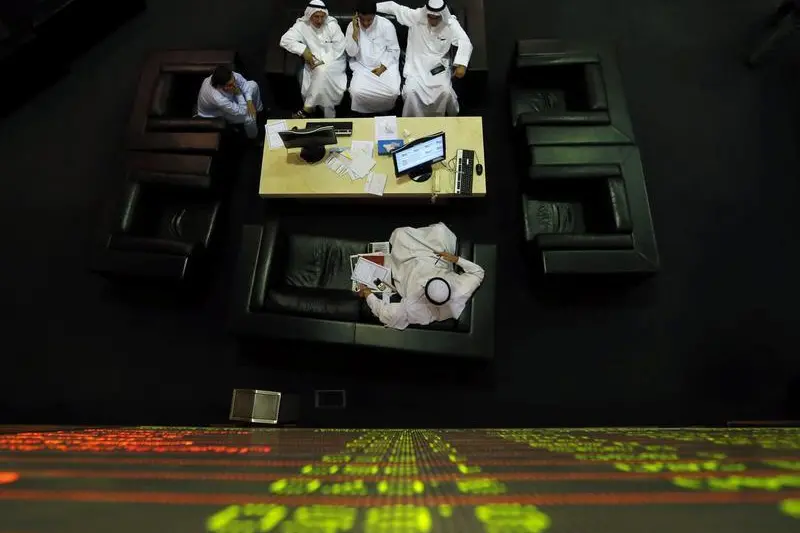PHOTO
Most stock markets in the Gulf ended higher on Thursday as a potential pause in U.S. interest rate hikes and the debt ceiling bill passing a crucial vote renewed optimism, although lower oil prices capped gains. U.S. Federal Reserve officials on Wednesday suggested interest rates could be kept on hold this month.
Meanwhile, the U.S. House of Representatives passed a bill to suspend the $31.4 trillion debt ceiling, improving the chance of averting a disastrous default. Most Gulf currencies are pegged to the U.S. dollar, while Saudi Arabia, the United Arab Emirates and Qatar usually mirror monetary policy changes in the United States.
Saudi Arabia's benchmark index gave up early gains to finish flat. The Saudi stock market could remain exposed to additional price corrections with oil prices recording some volatility and an uncertain trend, said Daniel Takieddine, CEO MENA at BDSwiss.
"The main index remains below this year's peak and could see some volatility in this regard."
Oil - a key catalyst for the Gulf's financial markets - edged lower as data showed rising inventories in the world's biggest oil consumer, the United States. Dubai's main share index added 1.4%, with toll-operator Salik Co gaining 1.4%.
In Qatar, the index ended 0.5% higher, with Qatar Islamic Bank rising 1.1% and lender Masraf Al Rayan climbing 2%. In Abu Dhabi, the index was down 0.4%.
Outside the Gulf, Egypt's blue-chip index closed 0.2% higher.
According to Takkiendine, the Egyptian stock market remained on a potential uptrend with global sentiment improving. "Global traders could thus help push the market to the upside if conditions remain appropriate."
- SAUDI ARABIA was flat at 11,015
- ABU DHABI fell 0.4% to 9,366
- DUBAI added 0.2% to 3,582
- QATAR gained 0.5% to 10,209
- EGYPT rose 0.2% to 17,533
- BAHRAIN dropped 0.3% to 1,958
- OMAN added 0.1% to 4,631
- KUWAIT declined 0.2% to 7,480
(Reporting by Ateeq Shariff in Bengaluru; editing by Eileen Soreng)




















